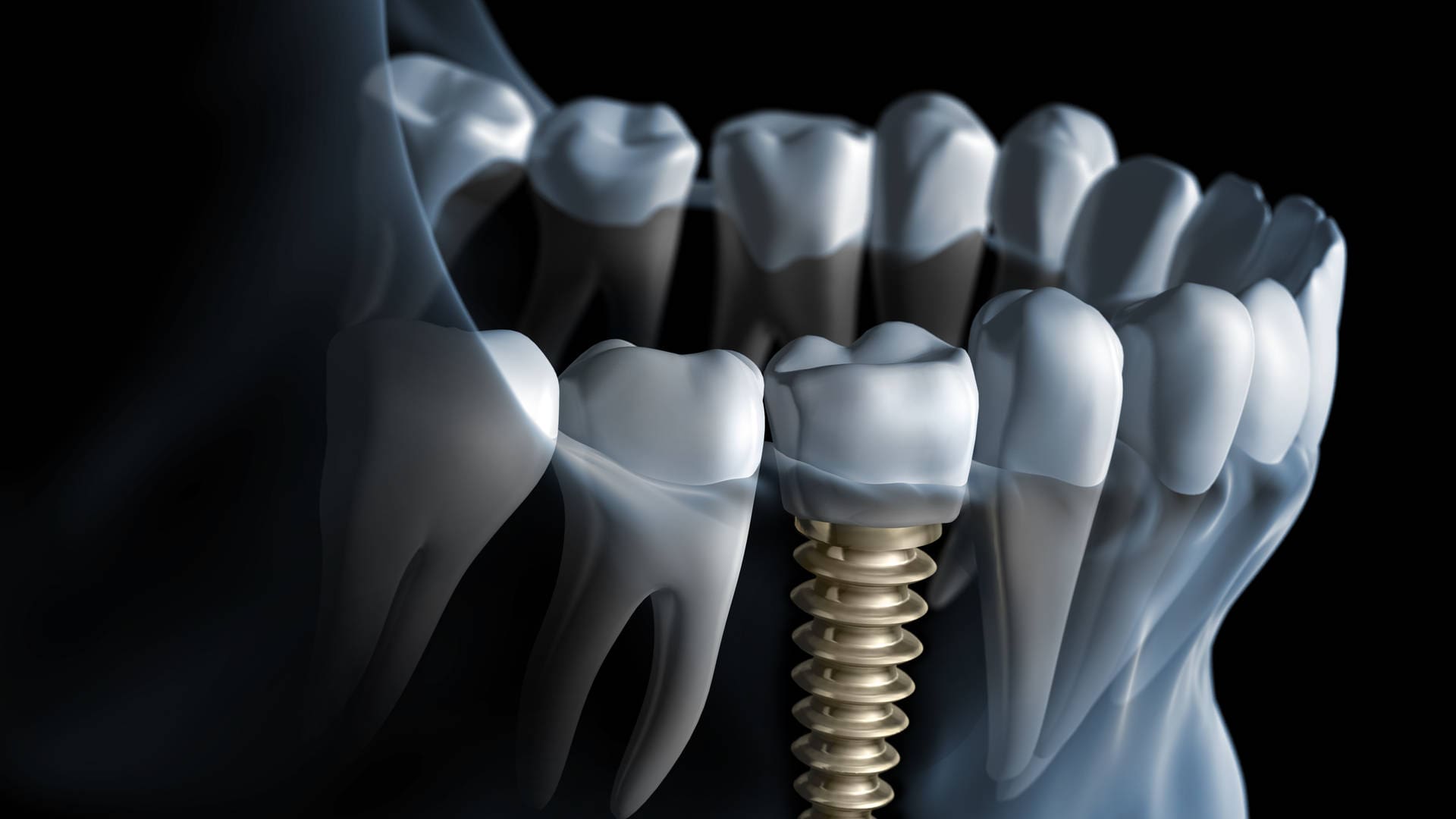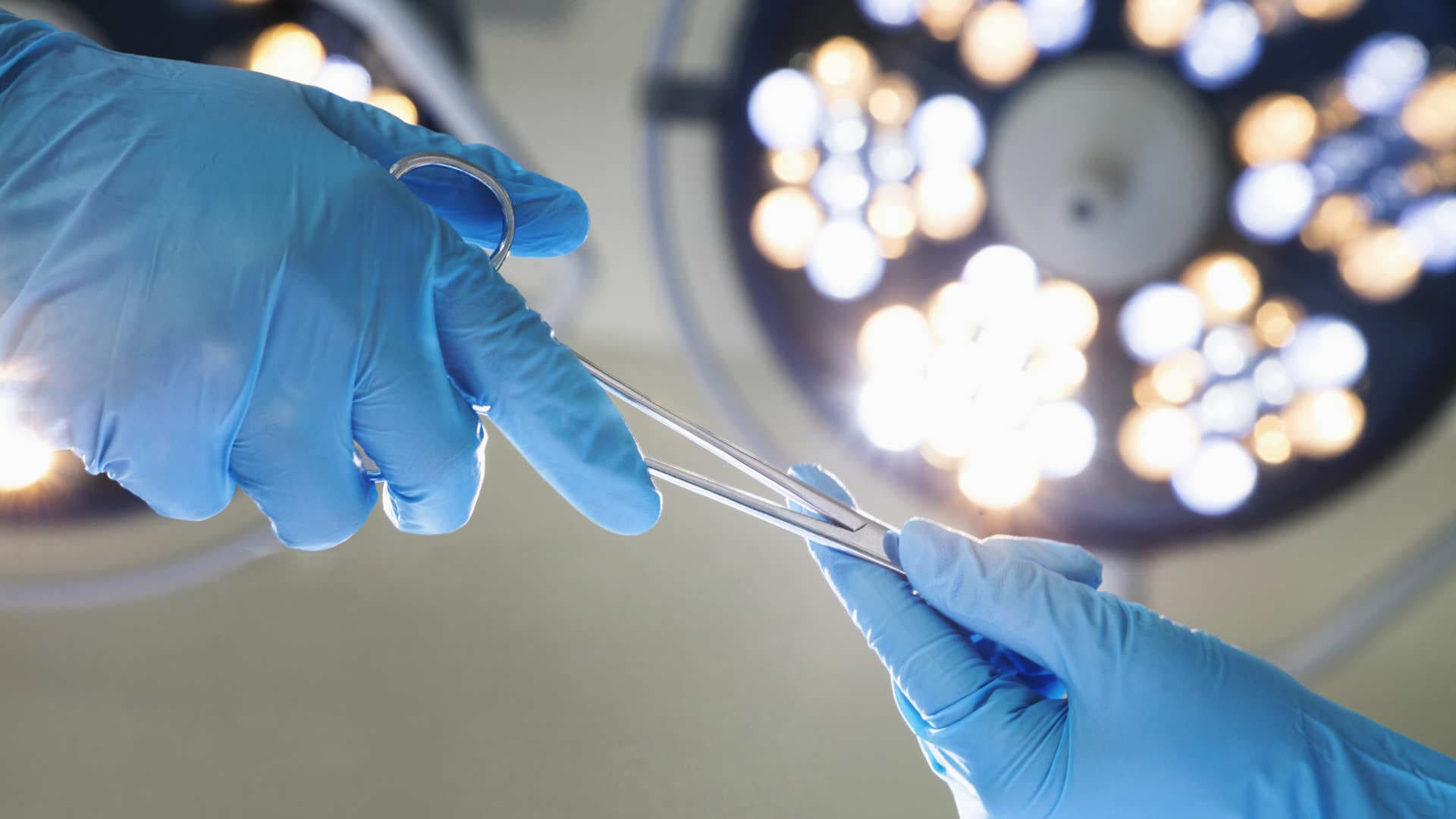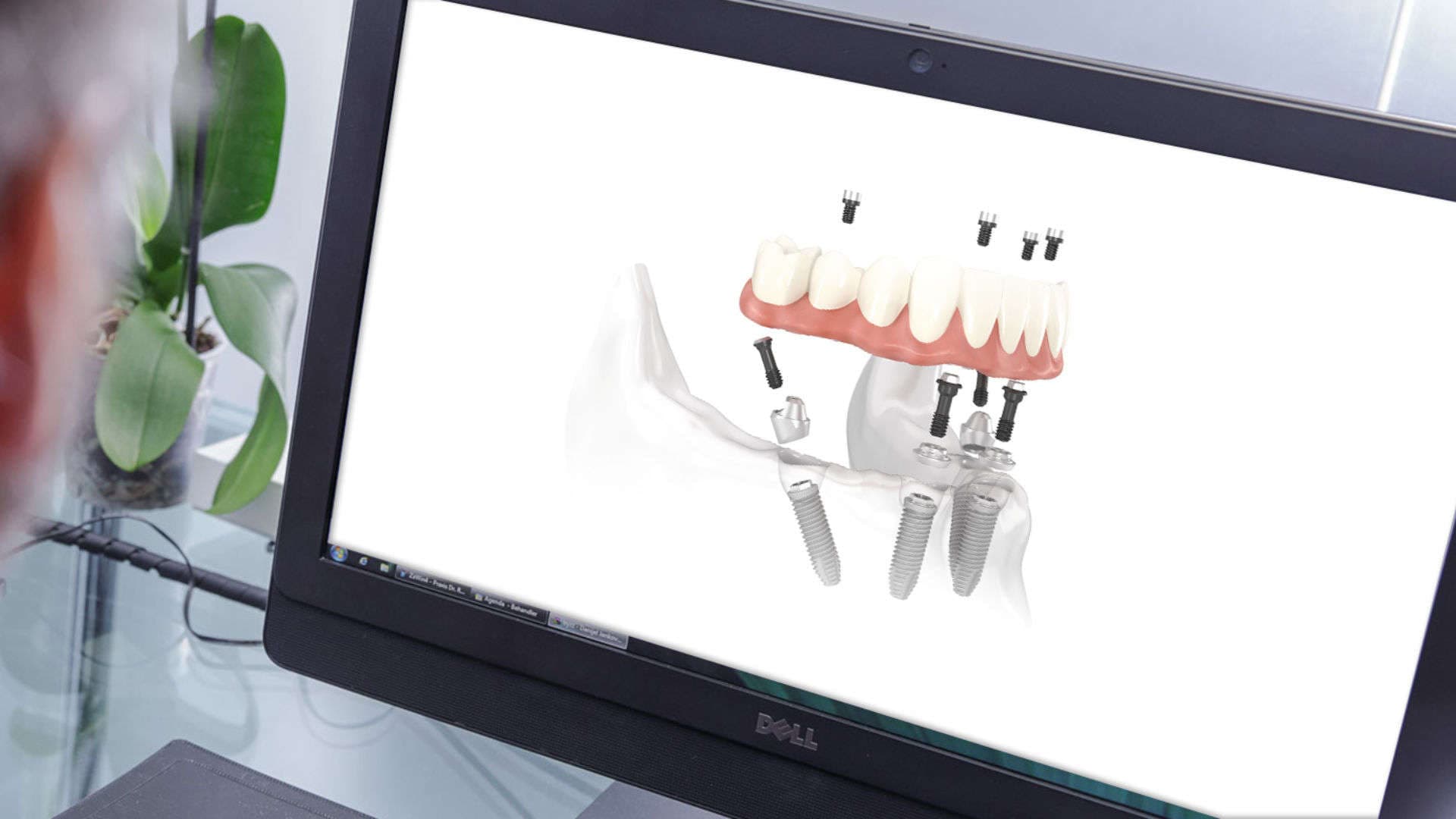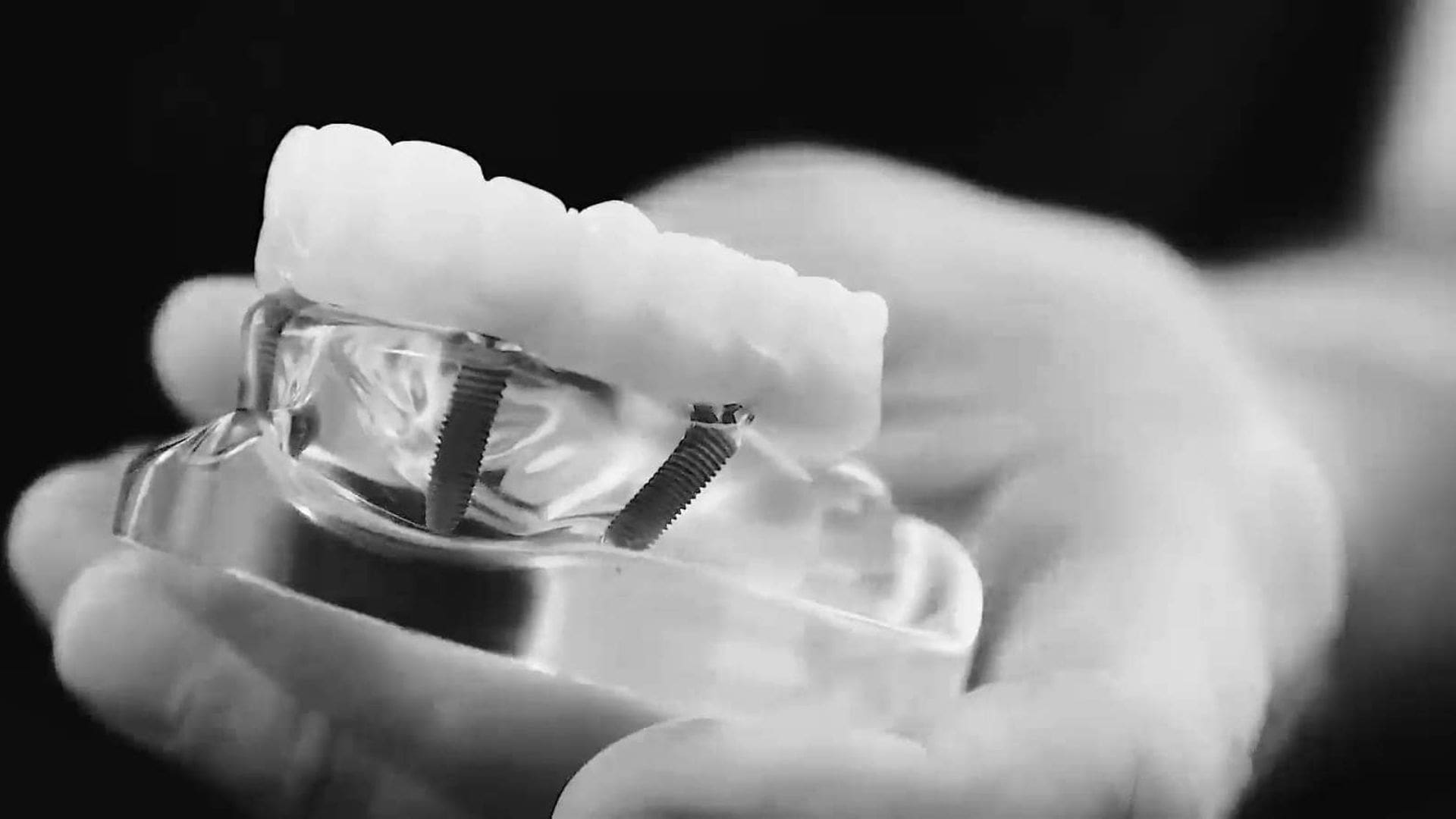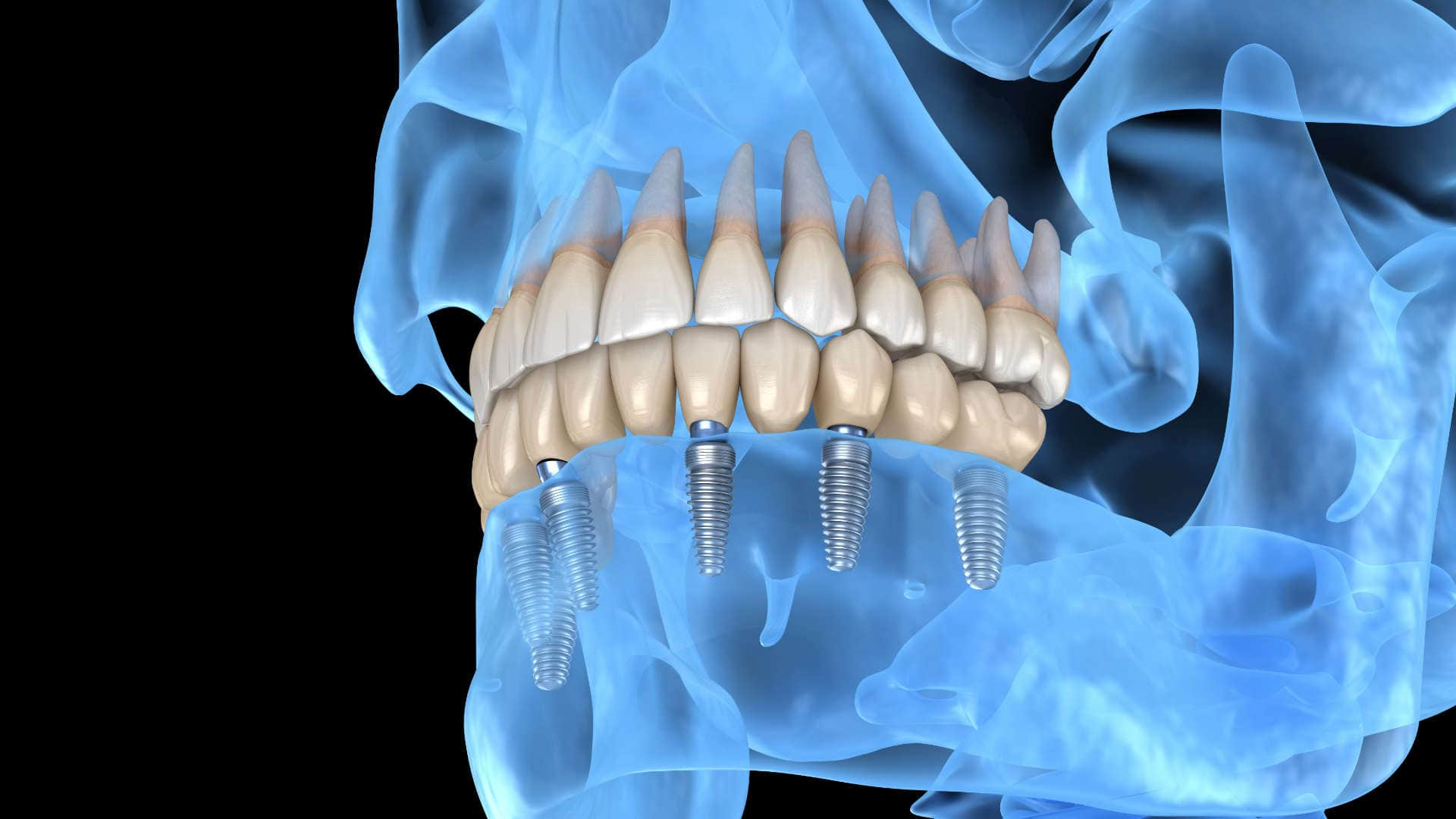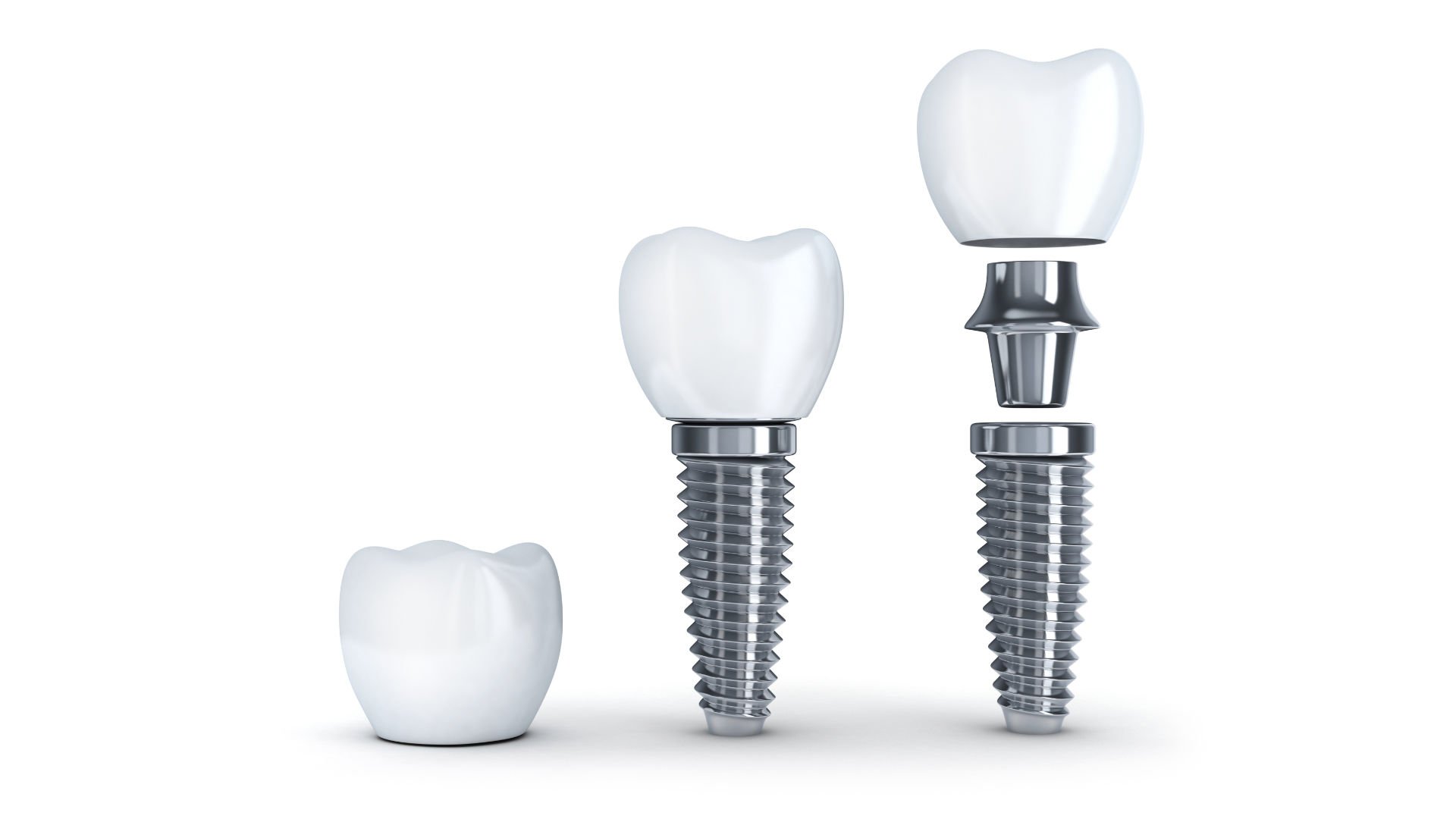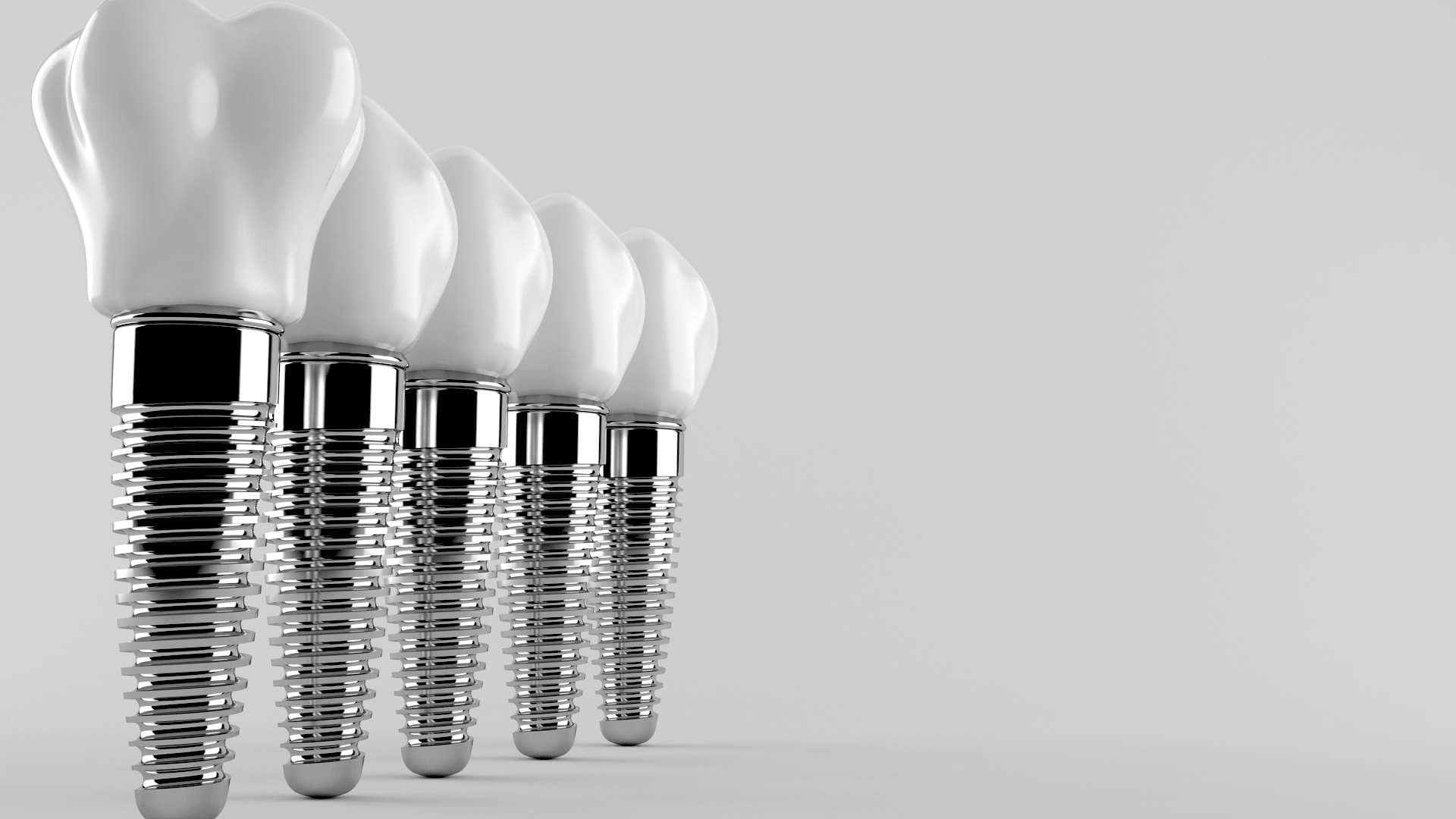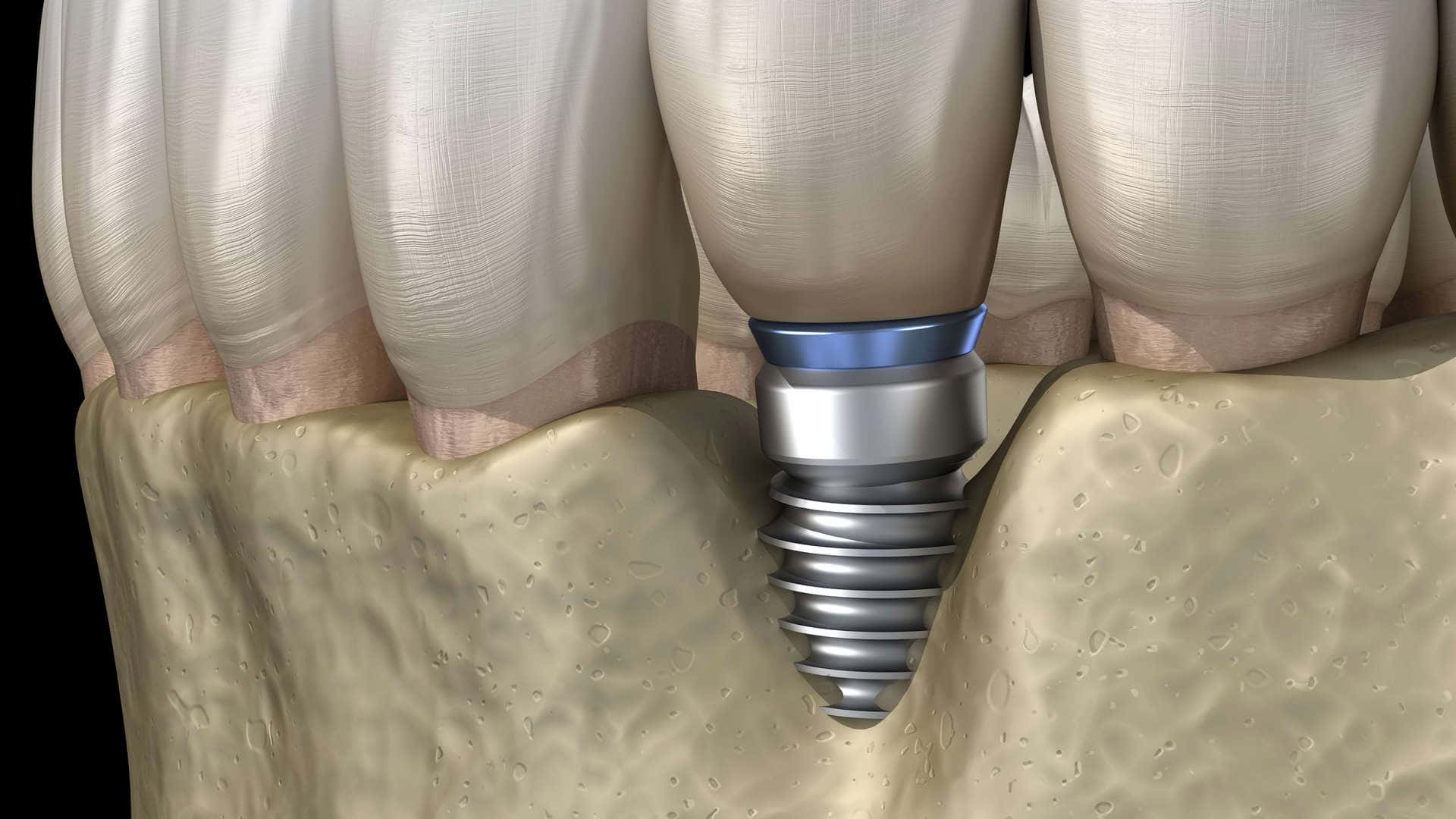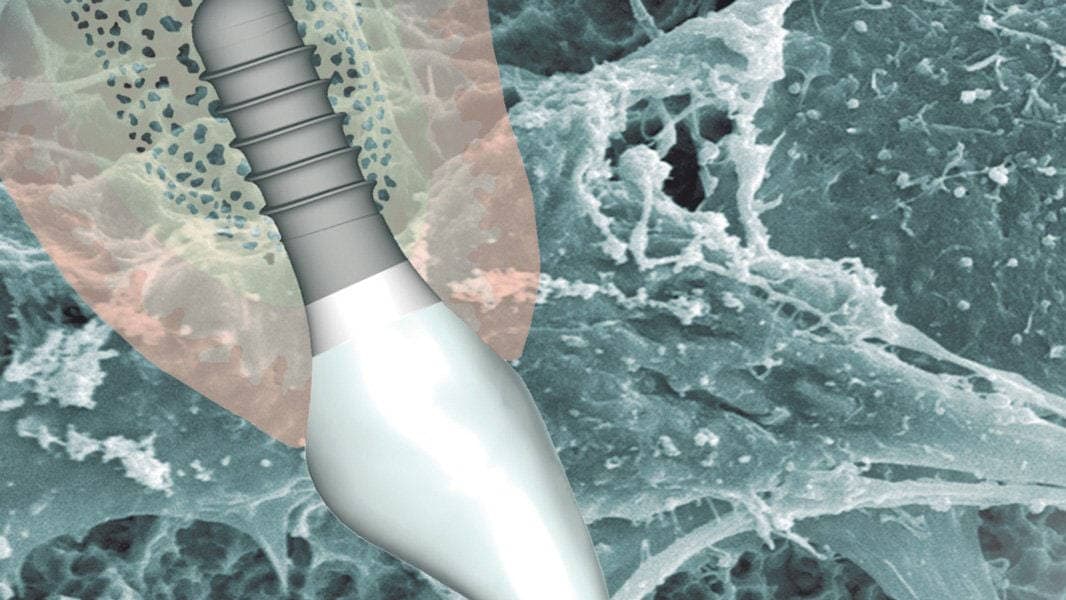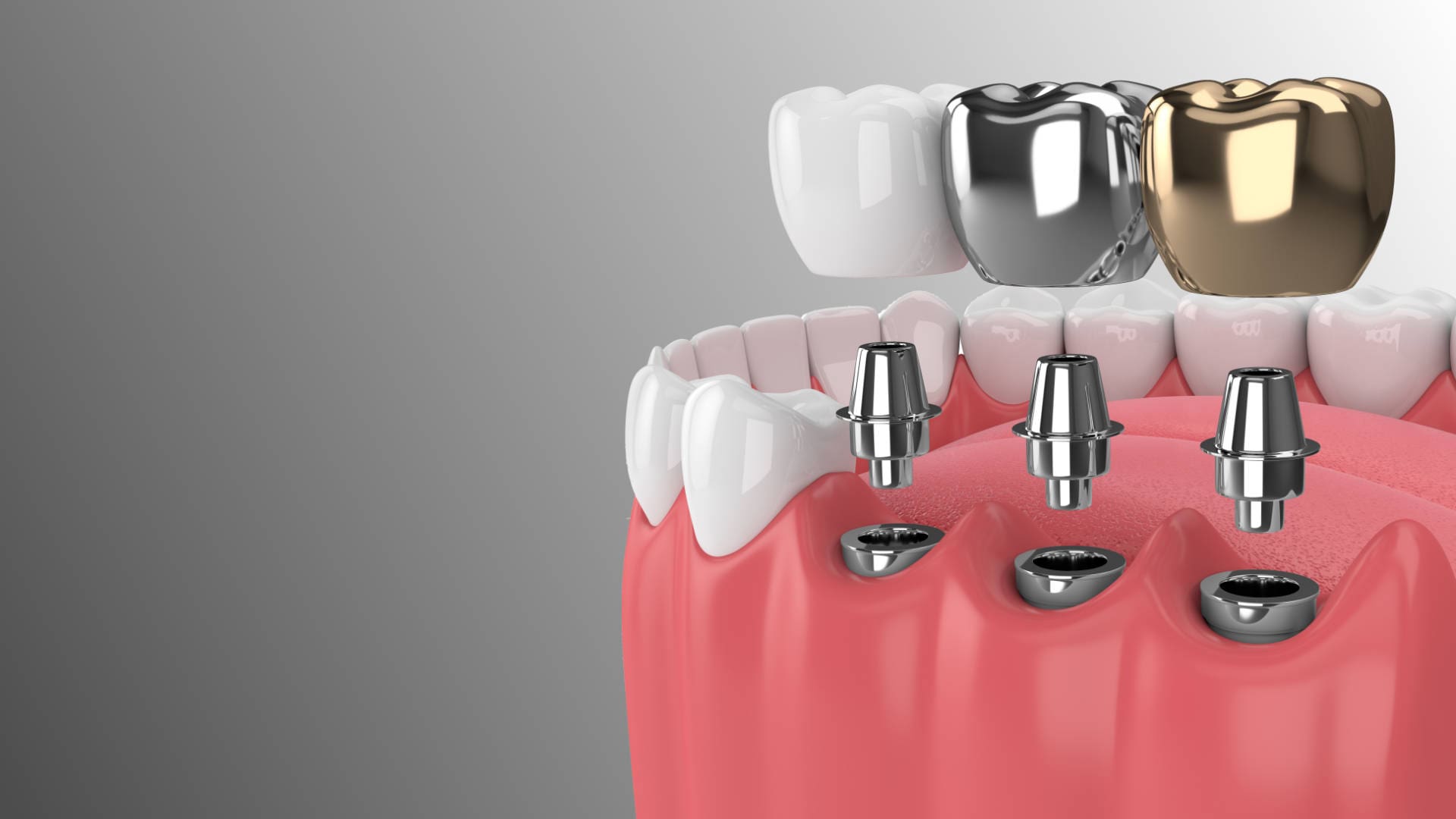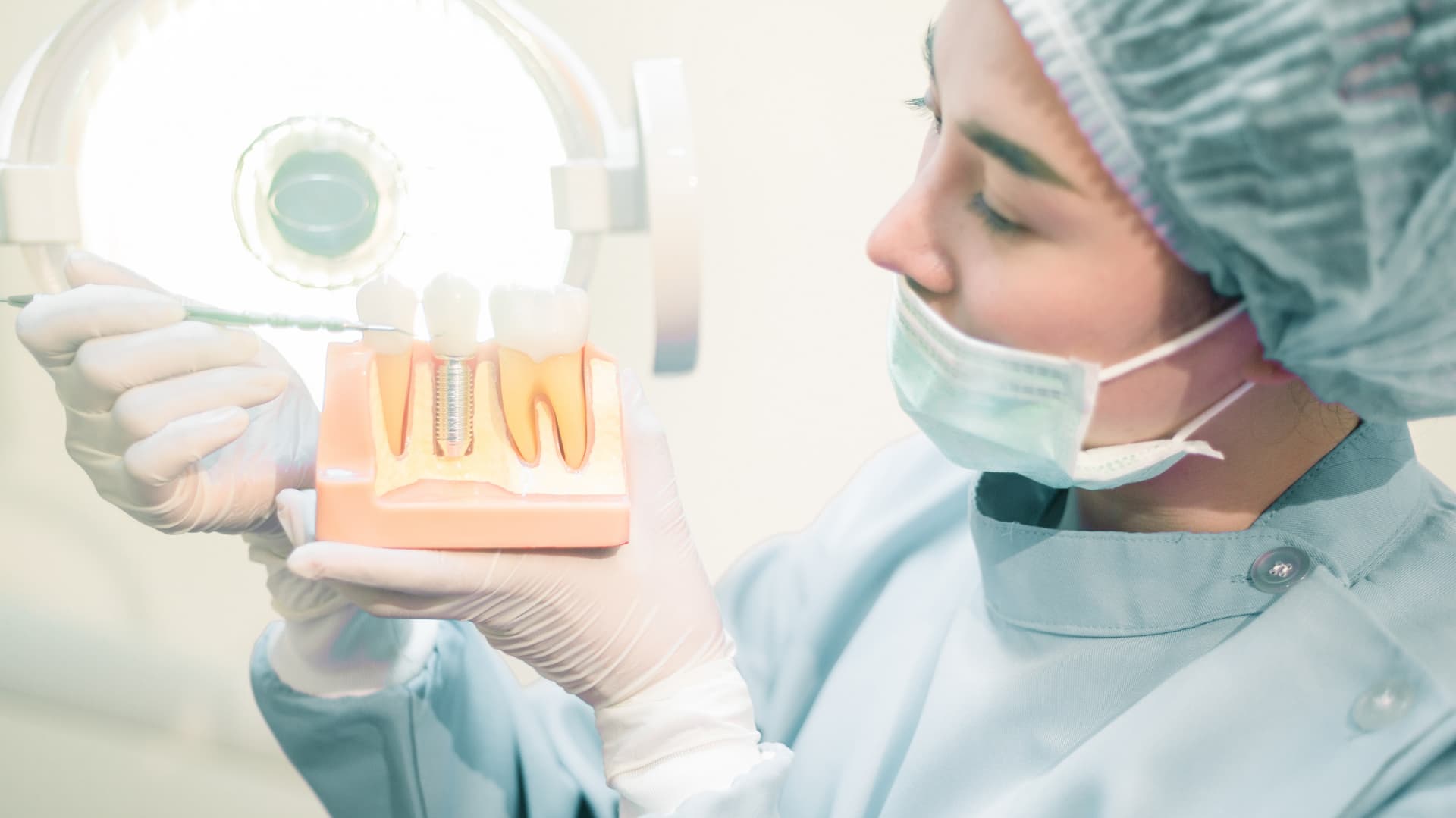Pain is a factor that may deter a patient from pursuing the permanent solution provided by implant placement. The best way to overcome this fear is to provide accurate information.
The guidelines below will assist you in overcoming the anxiety associated with dental implant pain. Learn what kind of discomfort is normal during the procedure, when it occurs, and how to deal with it.
Does it hurt to get dental implants?
Like all dental treatments, the surgical placement of dental implants is performed under local anesthesia. You should not feel any discomfort during the treatment; otherwise, something is wrong with the dentist’s technique. According to patients’ common admissions, the sensitivity and pain after the tooth implantation procedure is comparable or even less intense than those after tooth extraction. It is a tolerable pain that can be completely controlled with simple painkillers.
Depending on your oral health, you may require special regeneration procedures to prepare the area where the dental implants will be placed. Most patients report that the intensity of sensitivity – pain at this stage is possibly greater than that of implant placement.
Pain during the Bone Regeneration – Preparation stage
At this stage, the vast majority of patients do not require any painful procedures. However, some patients may require additional surgery before implant placement. This requirement arises in a variety of circumstances, such as when a bone graft, sinus lift, or tooth extraction is required. You may not require any of these, but this will be determined during an examination of the implant site prior to implant placement.
Local anesthesia is used for bone graft placement. The jawbone may swell as a result of this procedure. After you leave the office, your dentist may advise you to take pain relievers and anti-inflammatory medications.
If a sinus lift is required, the procedure usually takes more than an hour and is done under local anesthesia. After a few hours, you will notice tenderness – pain in your jaw, face, and possibly your nose. This discomfort is effectively controlled by the use of specialized painkillers.
If your remaining teeth are severely damaged and cannot be repaired, you will require tooth extraction prior to or concurrently with implant placement. This is usually the case when using the All On 4 method to place a full fixed denture. Under local anesthesia, tooth extraction is painless. You will feel mild pain in your gums for a few hours after the procedure, but it is completely manageable with simple pain relievers and gradually subsides.
If you have had a bone graft or sinus lift procedure, the implants will be placed at the same time or after a period of healing if the conditions are favorable. Because healing times vary from case to case, your dentist will inform you about them.
Pain during implant placement.
There is no discomfort during the implant placement procedure because it is done under local anesthesia.
How can I get rid of pain and sensitivity after surgery?
It is critical to carefully follow your dentist’s instructions for implant care after surgery. There are a few other things you can do to reduce the discomfort associated with implant placement.
Choose an experienced dentist.
The shorter, gentler, and more precise the procedure, and the lower the risk of post-operative pain, the more experienced the dentist. Choosing a qualified dental team (implant surgeon, periodontist, prosthodontist) to perform the work is critical to avoiding pain. Choose a clinic that has previously placed many implants with a high success rate. Such specialists typically have hundreds of before and after photos, as well as positive online reviews. There have been numerous reports of cases where the dentist’s inexperience resulted in nerve damage or other health issues.
Choosing a dentist who charges significantly less than their competitors may appear appealing at first. However, doing so may lead to complications that are not only painful and embarrassing, but also very expensive to fix (if they are fixed at all). We treat these types of cases in our clinic, particularly after surgery in foreign countries that advertise low-cost medical tourism services.
The proper medication.
Following the placement of the implants, your dentist will prescribe a pain reliever, anti-inflammatory medication, and possibly antibiotics.
You may already be taking medications for other conditions in addition to the ones prescribed by your dentist. Make sure to inform your dentist about this at your first appointment. This is significant because certain medications, such as anti-anxiety medications or some specialty medications, can impair healing. Certain medications can even cause implant failure. It is also critical to keep chronic health problems under control, particularly diabetes, as this aids in the positive progression of healing.
Proper nutrition and care.
On the day of the implants, avoid drinking or eating anything hot. For a few days, avoid straw drinks because the absorbent movement can cause bleeding at the implant site. Also, avoid using water or mouthwash bottles for two to three days.
For the first two weeks after the implants are placed, hard and sticky foods should be avoided. Eat soft foods or blend foods that you believe may interfere with chewing. However, make certain that your diet contains vitamins and nutrients that will assist your body in healing quickly and efficiently.
It is critical to maintain good oral hygiene during the healing process. To recover, your gums require a clean, contaminant-free environment. Furthermore, gum disease or tooth decay can be harmful not only to the success of the implant, but also to your overall health during this time.
Brush your teeth after each meal and use a non-alcoholic mouthwash at least three times a day for a week after surgery, as directed by your dentist.
Avoid alcohol and tobacco use.
Smoking is the absolute worst thing you could do after getting dental implants. Smoking, both traditional and electronic, slows healing and makes your mouth susceptible to infection.
Alcohol can also have a negative impact on healing. It should be avoided for at least the first 72 hours.
Rest after the procedure.
After your implants are placed, make sure you get at least 8 hours of sleep every night. Sleep plays an important role in healing. Furthermore, avoid any strenuous activity, such as exercise, for at least a week.
Most patients return to work the next day, but procedures such as sinus elevation or bone grafting may necessitate a longer recovery period. Your dentist will advise you on how much time you should rest.
As with all surgical procedures, pain is a normal side effect of healing. It usually lasts up to three days after the implants are placed, with a day-by-day reduction. Most patients only take pain relievers on the first day after surgery; they usually do not need them on subsequent days.
How long does the pain last after dental implants are placed?
When the pain does not go away after treatment, problems arise.
| DURATION | DETAILS |
|---|---|
| A few hours after the procedure | After a few hours, as the anesthesia wears off, you will feel less and less numbness. You will initially feel minor pain in the area, which will gradually worsen but be tolerable, as well as gum irritation. After taking a pain reliever, these symptoms will gradually fade, and most patients will sleep soundly. |
| Week 1 | Pain or pressure is still possible at this stage, especially when chewing or clenching your teeth. The pain usually subsides 72 hours after surgery. During this time, it is common for patients to continue taking pain medication. A little swelling (puffiness) is to be expected, and it usually peaks in 48 hours. It is best to apply an ice pack to the outside of the injured area for the first few hours after surgery. To avoid burns, avoid prolonged ice contact with the skin, remove the ice from the cheek every 10 minutes, and keep the ice pack covered with a cloth. |
| Week 2 | After about two weeks, you should be pain-free. If you are in pain, this could indicate an infection or another issue. Contact your dentist right away. |
| The following period | The coming weeks If you experience pain a few weeks after surgery, it could be a sign of infection, nerve damage, or implant failure. Inform your dentist right away. |
It is critical to be able to contact the dentist after the implant has been installed. You will almost certainly have a check-up scheduled, so notify him or her of any concerning symptoms at that time. Also, read our article on the problems and risks of dental implants and our FAQs for more information.
Frequently Asked Questions
Is general anesthesia required for implants?
The vast majority of patients do not require general anesthesia for the placement of dental implants. Typically, the patient is given local anesthesia as well as possibly a sedative.
If you have a fear of dentists, are extremely anxious, or have a low pain tolerance, you may require general anesthesia.
Is it normal to experience pain after implant placement?
For a few days after surgery, severe pain or pressure in the implant area is common. Pain is a normal part of the healing process. It happens on the first day, right after the anesthesia wears off. You may experience pain for the first few days or up to two weeks. If your doctor has prescribed pain relievers, take them exactly as directed. If the pain persists after this time, please contact him or her.
What if the implants cause pain years after they are placed?
You should not experience any pain after the procedure or after the initial healing period has passed. However, as with natural teeth, there is always the risk of infection or trauma to the implant site. If the pain persists, see your dentist, who will perform an x-ray to ensure that everything is in order.
